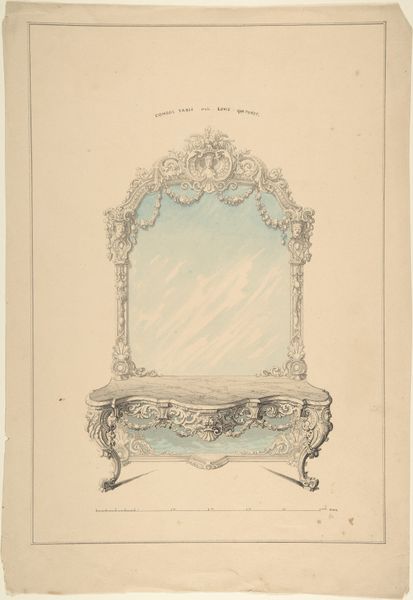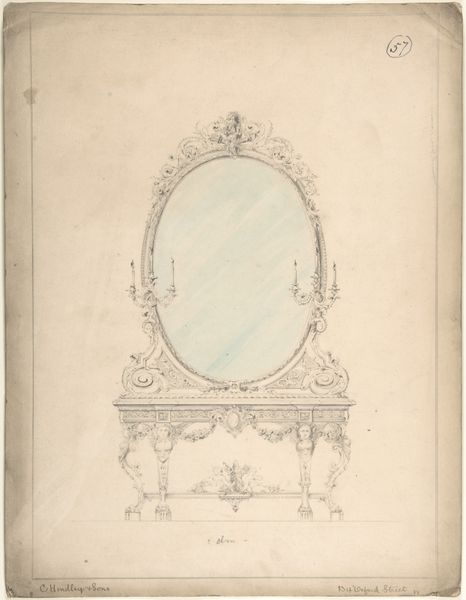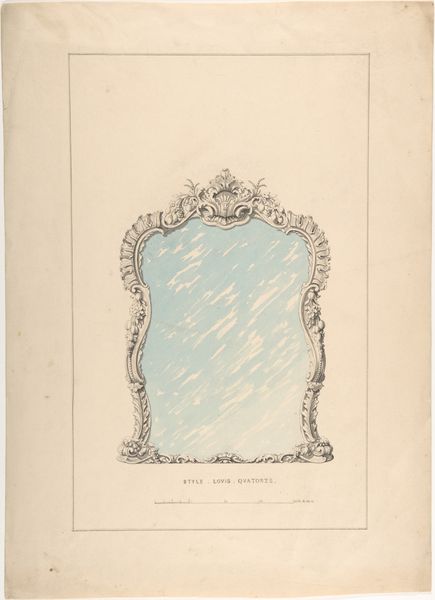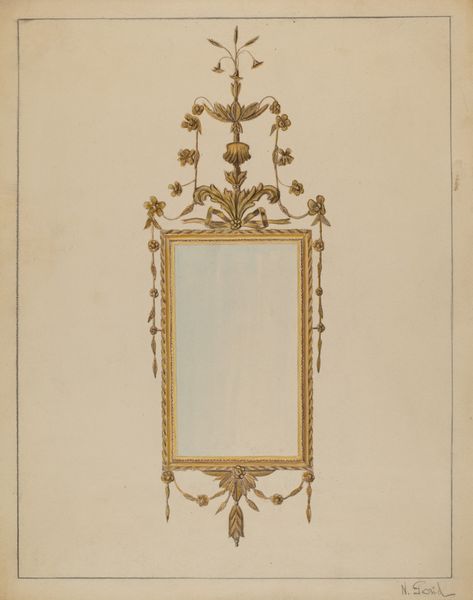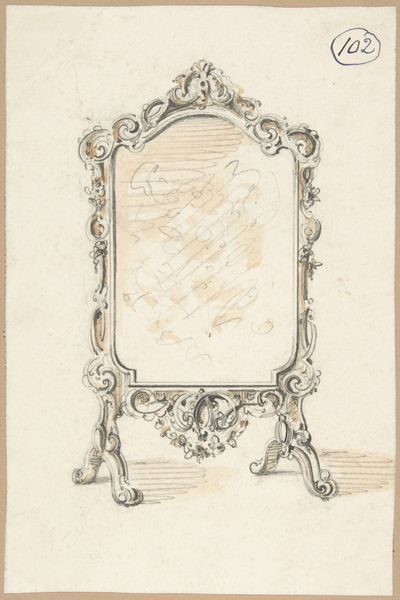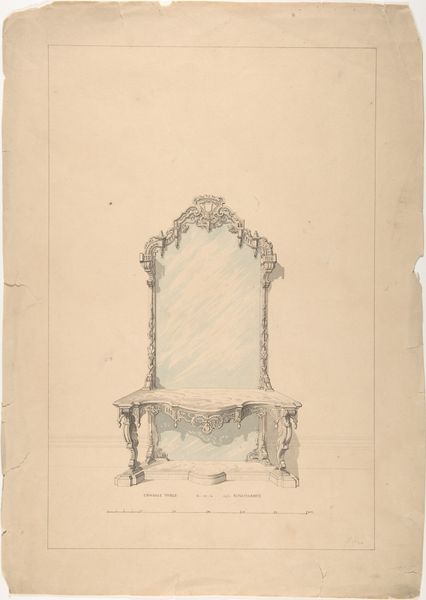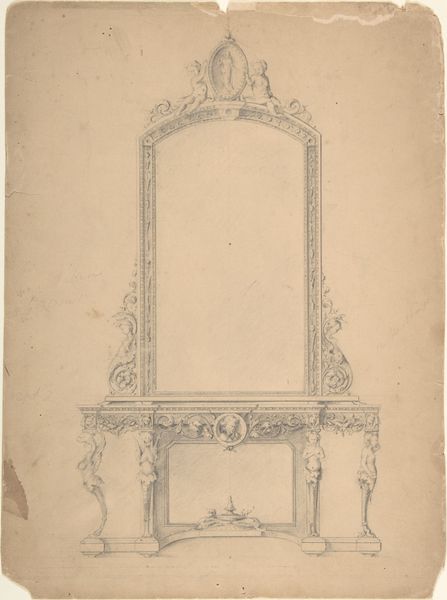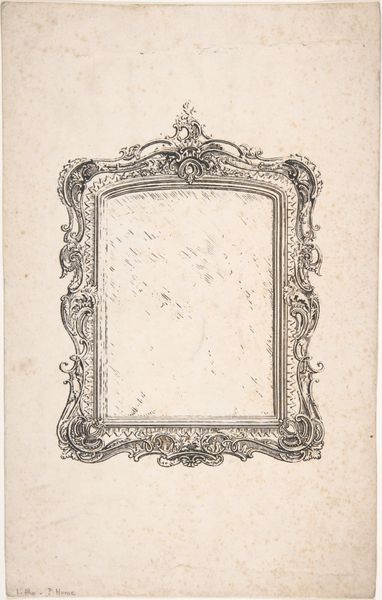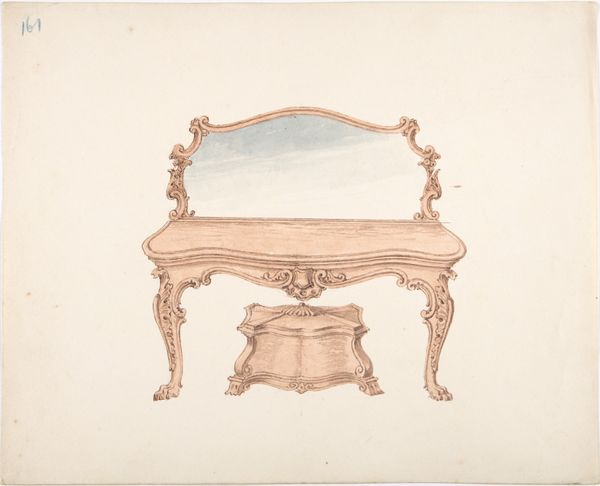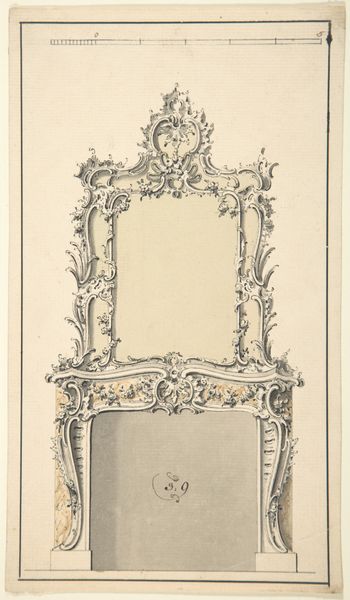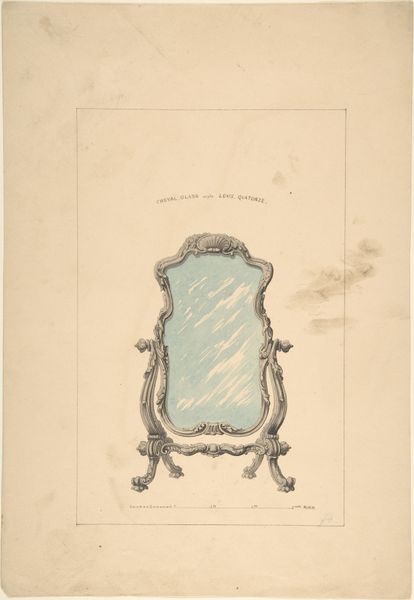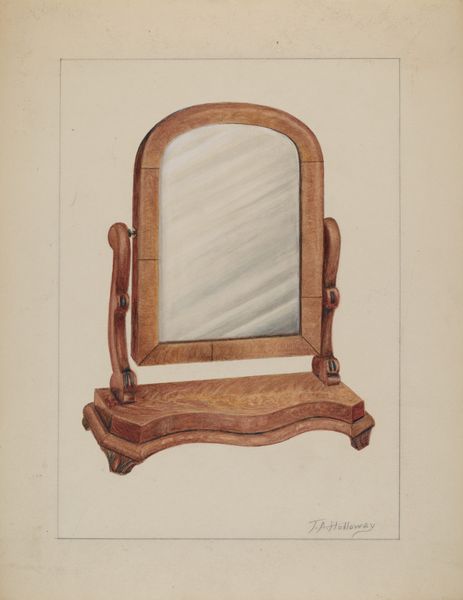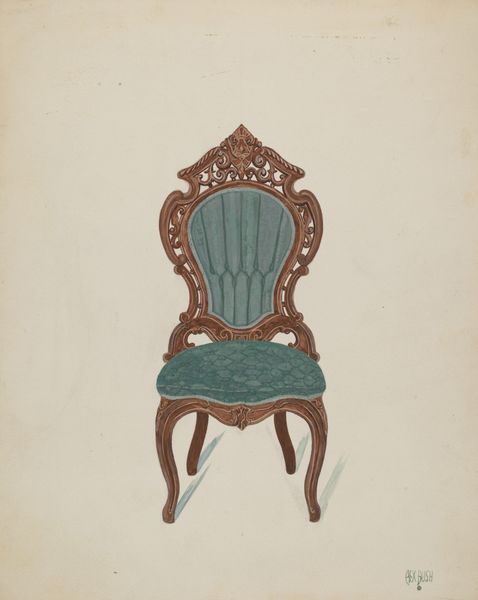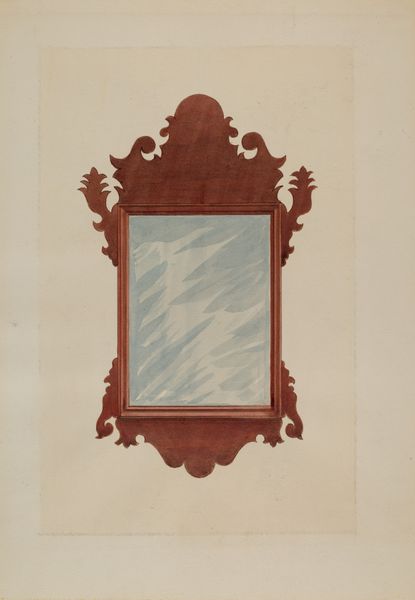
drawing, ink
#
drawing
#
furniture
#
ink
#
decorative-art
Copyright: Public Domain
Curator: Looking at this image, I feel transported. Such intricate detail—it practically glows with Rococo revival charm. Editor: You're right, there is something arresting about the drawing's ambition. What exactly are we looking at, beyond pure decoration? Curator: This is a "Design for Console Table," an ink and watercolor drawing crafted between 1850 and 1904 by Robert William Hume. Editor: So a plan rather than the object itself. Even on paper, this proposed design embodies power and status, doesn't it? That level of detail signals exclusivity and privilege. It is dripping in ornamentation! Curator: Absolutely. Consider the symbols: the scrolling acanthus leaves speak to rebirth and classical ideals, and the shell motifs connect us to Venus, to feminine allure. Editor: While those associations still hold symbolic weight, I think we need to also discuss how this type of elaborate decoration would have been entirely dependent on exploited labor, masking its dependence on systemic injustice. This isn’t merely decorative—it represents material and political power. Curator: I hadn’t thought about the inherent imbalance of power when beholding beauty in ornamentation; although I should know better than to divorce art and political messaging at this point in history. The mirroring also introduces this layer of the “self” becoming intertwined with displays of wealth, almost self-deification through material possessions. It almost makes you wonder what purpose a reflective service space offers someone within such extreme material circumstance. Editor: Precisely. A visual language designed to enforce and reflect a certain hierarchy. However, despite that, and speaking personally now, it has a kind of ethereal elegance... and a seductive charm. The very delicacy of line is impressive. I cannot help but think of the many hands that never achieved visibility in making design happen in this era. Curator: Yes. Perhaps in the contemporary era, such extravagance inspires more introspection around its creation. So many echoes. Thank you for highlighting what lurks under its beauty. Editor: Thanks for expanding it beyond just my focus; together, we make art more approachable, or more provocative, and both are really what it needs right now.
Comments
No comments
Be the first to comment and join the conversation on the ultimate creative platform.
